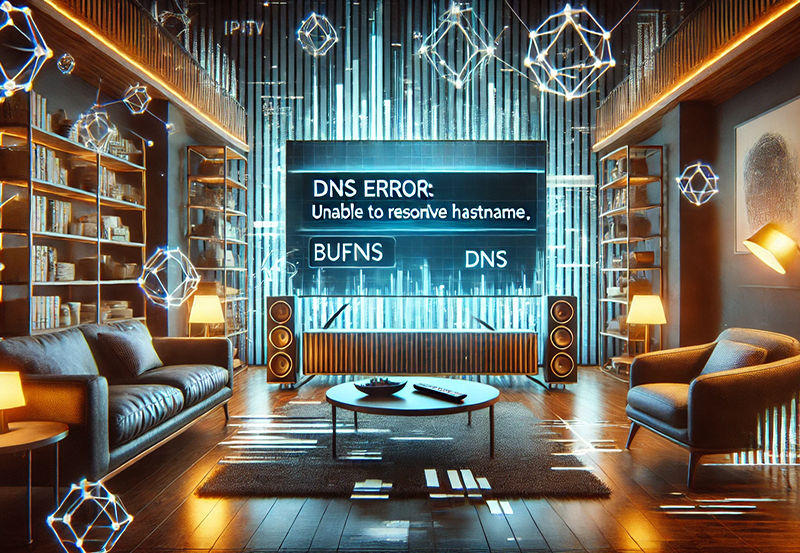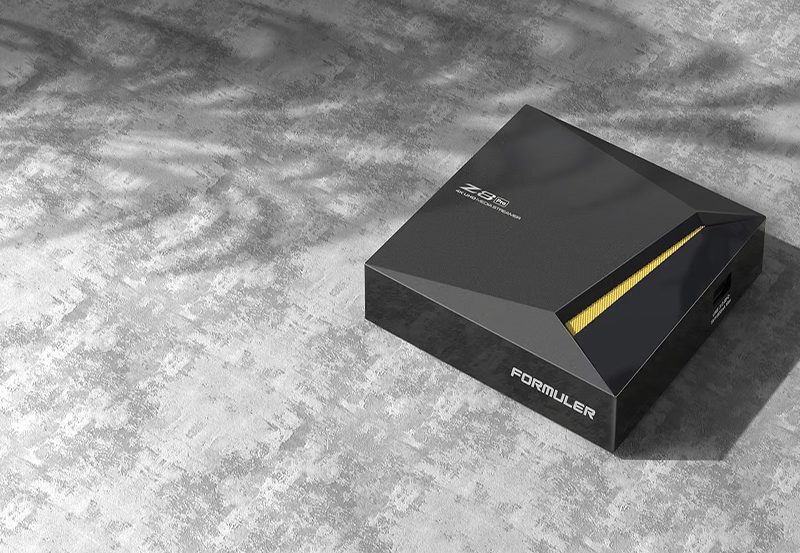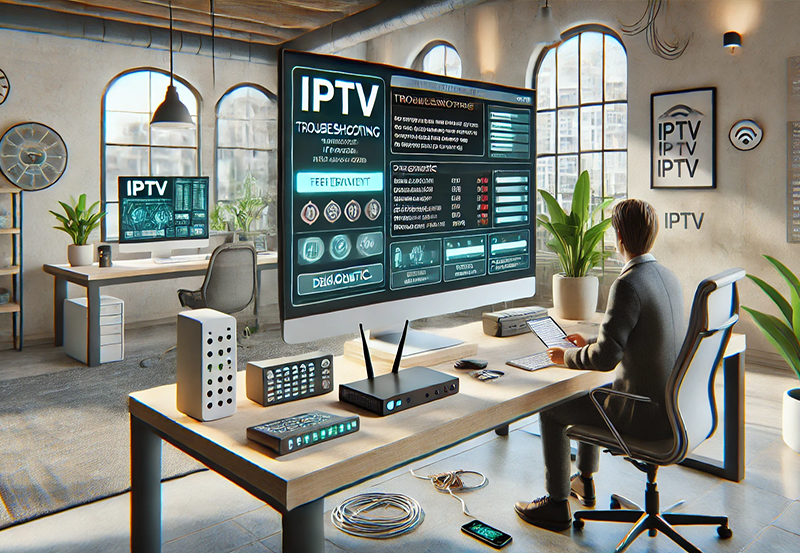Buffering is one of the most common issues IPTV users experience, often disrupting the viewing experience. This guide will provide you with an in-depth look at the causes of IPTV buffering and actionable solutions to minimize or eliminate it.
Understanding the Causes of IPTV Buffering
Buffering in IPTV can occur due to several reasons, such as:
- Network Speed: IPTV streaming requires a stable internet connection. Slow speeds or fluctuating connections can lead to buffering.
- Server Overload: IPTV providers often have limited server capacity, and high user traffic can cause delays and buffering.
- High-Resolution Streaming: Watching content in HD, 4K, or UHD requires more bandwidth, which can lead to buffering if your connection isn’t strong enough.
- Device Performance: Low-end or outdated devices may struggle to stream high-quality video smoothly.
- Wi-Fi Interference: If your device is connected over Wi-Fi, factors like distance from the router or interference from other devices can impact streaming quality.
Tips and Solutions to Fix IPTV Buffering Problems
1. Check Your Internet Speed and Bandwidth
- Recommended Speed: For SD streaming, a minimum of 5 Mbps is generally required, while HD requires around 10 Mbps, and 4K UHD may need 25 Mbps or more.
- Speed Test: Use a reliable speed test service (like Speedtest.net) on the device you’re using for IPTV to check your current download speed.
- Reduce Network Load: Close other apps or devices using the internet, like downloading, gaming, or streaming on other devices, to free up bandwidth.
2. Use a Wired Connection (Ethernet)
- Stability: A wired Ethernet connection is typically more stable than Wi-Fi, which reduces buffering.
- Reduce Interference: By connecting directly to your router, you avoid Wi-Fi-related issues like interference or weak signals.
3. Optimize Wi-Fi Settings (If Ethernet Is Not an Option)
If you need to use Wi-Fi, here are some tips to optimize it:
- Reduce Distance: Move your device closer to the router or install the IPTV app on a device located nearer to the router.
- Upgrade Your Router: Consider using a dual-band (2.4 GHz and 5 GHz) router, which offers more channels and less interference.
- Use 5 GHz Band: If possible, connect to the 5 GHz band for faster speeds, though it has a shorter range than 2.4 GHz.
- Limit Other Devices: Temporarily disconnect or limit other devices on the same network to ensure maximum bandwidth for IPTV.
4. Adjust Video Quality Settings
- Lower the Resolution: If you’re experiencing buffering on HD or 4K content, consider lowering the resolution to 720p or even SD (standard definition).
- Auto-Adjust Quality: Some IPTV apps have an option to auto-adjust video quality based on internet speed. Enable this feature to maintain a balance between quality and smooth playback.
5. Clear Cache and Restart the IPTV App
- Clear Cache: Regularly clear the cache of your IPTV app to improve performance. Caches store temporary files that can become corrupted and cause issues.
- Restart App: Closing and reopening the IPTV app can also clear minor issues that may be causing buffering.
- Reinstall App: If buffering persists, uninstall and reinstall the IPTV app. This can resolve issues due to corrupted files or outdated versions.
6. Restart Your Router and Device
- Restart Router: Turn off your router for 10–15 seconds and then turn it back on. This clears any temporary glitches and refreshes your connection.
- Restart Device: Reboot your IPTV device (smart TV, Android box, Firestick, etc.) to clear temporary files and improve performance.
7. Change IPTV Server (If Available)
- Alternate Servers: Some IPTV providers offer multiple servers to connect to. Try switching servers to see if another one offers better performance.
- Contact Provider: If no other servers are listed, contact your IPTV provider to ask if they can switch you to a different, less congested server.
8. Disable VPN or Choose a Faster Server
- Impact of VPN: While a VPN can help access restricted content, it can also reduce connection speed, causing buffering.
- Disable VPN: If you’re using a VPN, try disabling it to see if it improves streaming performance.
- Choose a Faster Server: If you need a VPN for privacy, select a VPN server close to your location or a server with higher speed.
9. Update the IPTV App and Device Firmware
- App Updates: Outdated IPTV apps can have compatibility issues or bugs that may cause buffering. Make sure your app is updated to the latest version.
- Device Firmware: Check if your streaming device has any pending software updates. Firmware updates often improve performance and compatibility with apps.
10. Upgrade Your Internet Plan
If you consistently experience buffering, your current internet plan may not provide enough bandwidth, especially if multiple users are on the network.
- Higher Bandwidth Plan: Consider upgrading to a higher bandwidth plan with speeds of at least 50 Mbps if possible, to ensure smooth streaming.
11. Use a Quality IPTV Provider
- Provider Reliability: Some IPTV providers have more reliable servers than others. If buffering issues persist despite troubleshooting, it may be due to poor server quality from the provider.
- Switch Providers: Consider switching to a provider known for stable, high-speed servers. Check reviews and test trials if available to assess their service.
Additional Tips for Optimal IPTV Streaming
- Use a Buffer Setting (If Available): Some IPTV apps let you adjust buffer settings. Increasing the buffer size can help with smoother playback but may delay the start of the stream slightly.
- Avoid Peak Hours: Streaming during peak hours (evenings and weekends) can strain your provider’s servers and lead to buffering. Try to watch during off-peak hours for a better experience.
- Optimize Device Storage: On some devices, low storage can impact performance. Delete unnecessary files or apps to free up space for smoother IPTV operation.
what is IPTV smarter and how can install?
Conclusion
IPTV buffering can often be minimized by ensuring a stable, high-speed internet connection, optimizing device settings, and choosing a reliable IPTV provider. By following these steps, you can greatly reduce buffering issues and enjoy a smooth, uninterrupted IPTV experience.
How to Fix IPTV Buffering: Tips and Solutions





